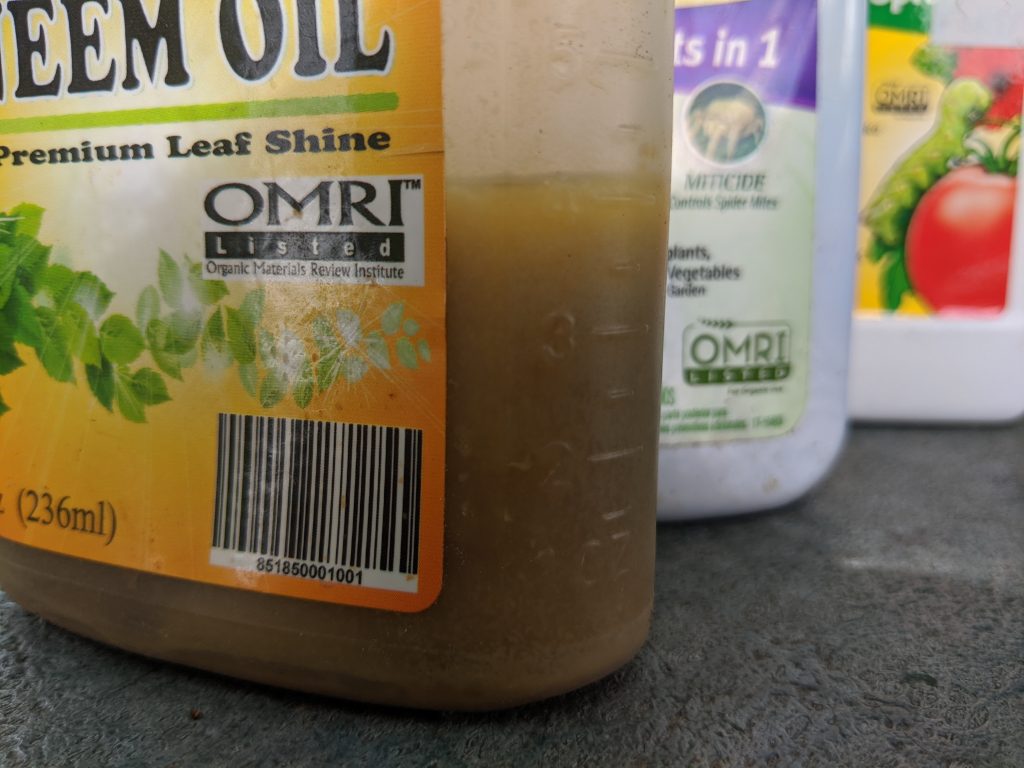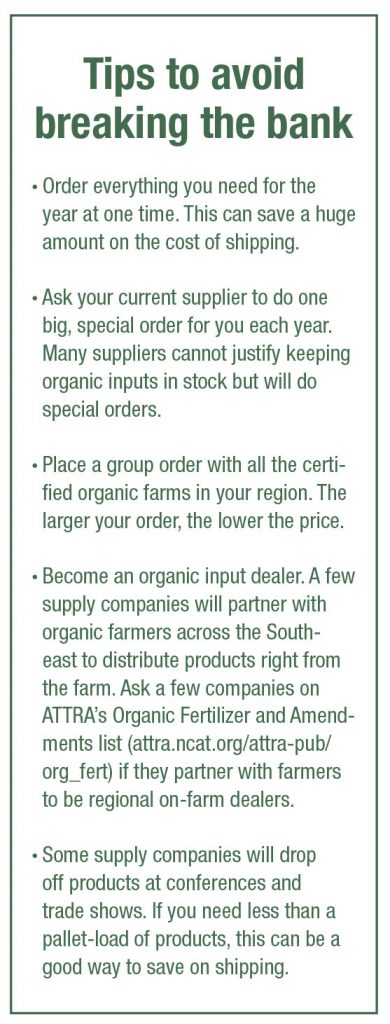
By Sarah Bostick
Access to approved inputs is a challenge in states with few certified organic farms. Agricultural supply stores in these states often don’t have enough demand to keep approved products in stock. But with a little creativity, you can get your hands on all the inputs you need.
WHERE TO LOOK
Two independent groups determine if an input is approved for use on certified organic farms: The Organic Materials Review Institute (OMRI) and Washington State Department of Agriculture (WSDA). OMRI maintains the largest list, with over 7,500 approved inputs. These inputs include fertilizers, sprays, inoculants, sanitizers, compost, potting mix and more.
On OMRI’s website (omri.org), you can download and print the annual “OMRI Products List” (currently, 375 pages) for free or purchase a copy.
OMRI-approved products will have an OMRI seal on the packaging. A product labeled “organic” or “natural” that does not have an OMRI or WSDA seal is not an approved input. Using these products can result in losing your organic certification.
MANURE AND MANURE-BASED COMPOST
Manure and compost are common inputs on organic farms but can be complicated to navigate. Before making or purchasing compost or using manure, read these two publications:
- Tip Sheet: Compost (www.ams.usda.gov/sites/default/files/media/Compost_FINAL.pdf)
- Tip Sheet: Manure in Organic Production Systems (www.ams.usda.gov/sites/default/files/media/Manure%20in%20Organic%20Production%20Systems_FINAL.pdf)

Manure used on organic farms does not have to come from certified organic livestock. However, if you use manure or compost containing manure from a conventional operation, it is a good idea to send a sample to a laboratory for herbicide testing. Certain persistent pesticides used on pastures and hay fields do not break down in the digestive system of livestock or in well-managed composting systems.
SEEDS AND PLASTIC MULCH
Two categories of inputs not found in the “OMRI Products List”are seeds and plastic mulch. Single-use plastic mulch is a synthetic material that is allowed on certified organic farms. Biodegradable plastic mulch, however, is currently not allowed because it does not meet the criteria for use on organic farms. For now, stick to the fully synthetic plastic mulches.
Certified organic seed is widely available. Here are three seed companies that carry a broad selection: High Mowing Seed, Johnny’s Selected Seeds and Southern Exposure Seed Exchange. For a much longer list, visit ATTRA’s online Directory of Organic Seed Suppliers (attra.ncat.org/attra-pub/organic_seed).
Certified organic, hybrid seed varieties are widely used by organic farmers. GMO seed, however, is never allowed. Some seed varieties are available with an approved pelleting material. This is typically described in seed catalogs as “available with NOP-compliant pelleting.”
CONCLUSION
The first step in sourcing approved inputs is knowing what is approved. If you are unsure, contact your certifier before using a product. Plan ahead and be creative about how you access the inputs you need to successfully manage your certified organic farm.









